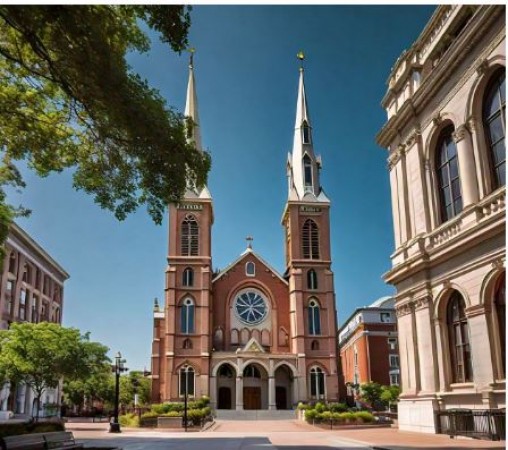
The Protestant Reformation and the Catholic Church have been two of the most influential forces in shaping Western religious history. While their differences are well-documented, there are many lesser-known facts and stories that reveal the complexities and nuances of these two Christian traditions. In this article, we will delve into the unknown aspects of Protestantism and Catholicism, exploring their histories, beliefs, and practices.
Protestantism
1. The First Protestant was a Catholic
Martin Luther, the father of the Reformation, was a devout Catholic priest who initially sought to reform the Church from within. His famous 95 Theses, nailed to the door of the Castle Church in Wittenberg, were intended to spark a theological debate, not create a new denomination.
1. The Protestant Work Ethic
Max Weber's seminal work, "The Protestant Ethic and the Spirit of Capitalism," highlights the connection between Protestant values and the rise of modern capitalism. Protestants' emphasis on hard work, thriftiness, and individual responsibility contributed to the development of industrial societies.
1. Protestantism and Science
Contrary to popular belief, Protestantism has a rich history of promoting scientific inquiry. Many prominent scientists, such as Johannes Kepler and Isaac Newton, were Protestants who saw their work as a way to understand God's creation.
Catholicism
1. The Catholic Church and the Scientific Revolution
The Catholic Church played a significant role in the Scientific Revolution, with many Catholic scientists and theologians contributing to the development of modern science. The Church's emphasis on reason and intellectual inquiry created an environment conducive to scientific discovery.
1. The Forgotten Catholic Feminist Movement
In the early 20th century, a group of Catholic women, led by figures like St. Teresa Benedicta of the Cross (Edith Stein), advocated for women's rights and gender equality within the Church. Their efforts laid the groundwork for future feminist movements.
1. Catholic Social Teaching
Catholic Social Teaching, a body of doctrine that addresses social justice and human dignity, has been a driving force behind many social movements, including labor rights, civil rights, and environmental activism.
Shared Histories and Practices
1. The Common Heritage of Monasticism
Both Protestantism and Catholicism have roots in monasticism, a tradition that emphasizes spiritual discipline, community, and service. Monastic orders like the Benedictines and Franciscans have played a significant role in shaping Christian spirituality and culture.
1. The Importance of Sacraments
While Protestantism and Catholicism differ on the number and nature of sacraments, both traditions recognize the significance of sacred rituals in Christian life. Baptism, the Eucharist, and other sacraments continue to play a vital role in the spiritual practices of both Protestants and Catholics.
The histories of Protestantism and Catholicism are rich and complex, filled with stories of saints and sinners, reformers and revolutionaries. By exploring the lesser-known aspects of these two Christian traditions, we gain a deeper understanding of their beliefs, practices, and contributions to Western religious history. As we navigate the complexities of modern religious life, remembering our shared heritage and the hidden histories of Protestantism and Catholicism can foster greater understanding, respect, and cooperation between different Christian denominations.
Rajkot Remembers Fire Tragedy with Citywide Bandh
Komal Pandey Stuns in Bold Black Cut-Out Dress for Her Birthday Celebration